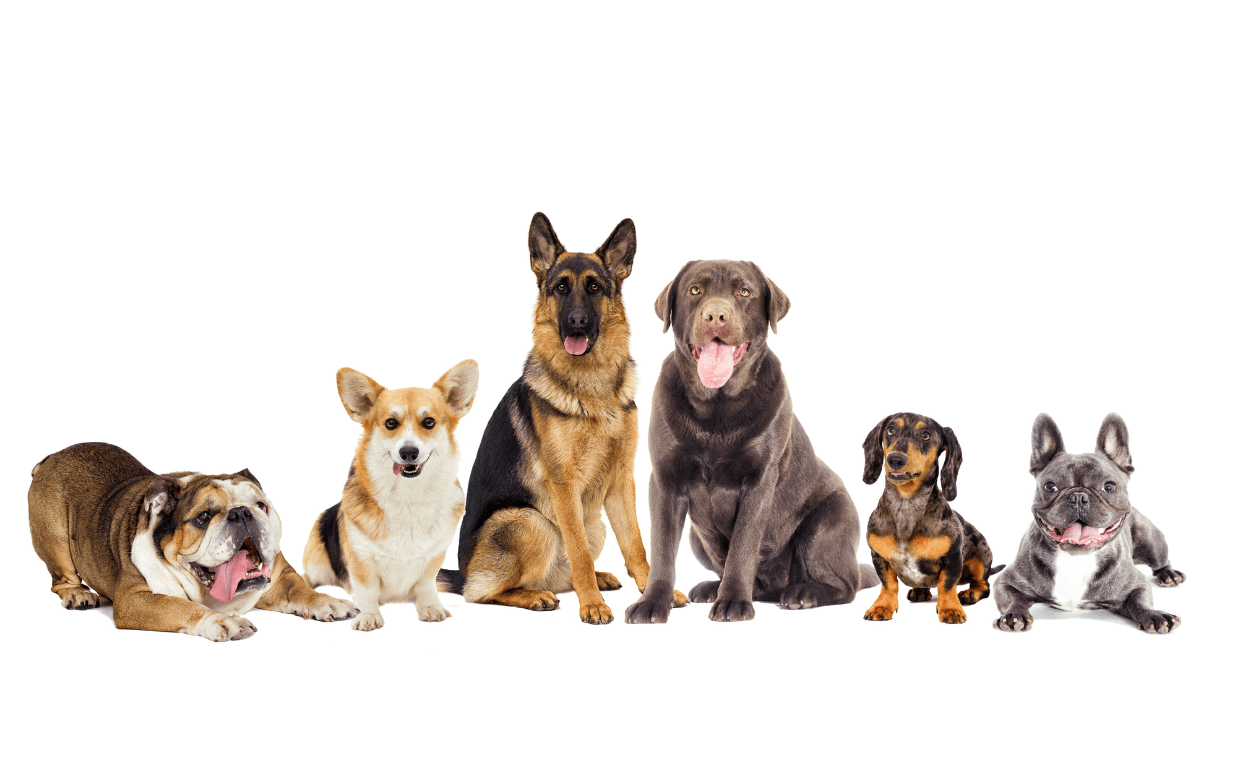
Many pet parents think of their dogs as family members. Dogs have a different genetic makeup than their human counterparts. But do humans and dogs have genetic similarities? Do dogs have the same number of chromosomes as humans? And how much can we learn about our dogs from new research in dog DNA?
What Are Chromosomes?
All animals and plants contain thread-like structures within the nucleus of their cells called a chromosome. Each chromosome is made up of protein and a single molecule of deoxyribonucleic acid (DNA). DNA is passed from parents to offspring and contains the information that makes each living creature unique.

How Many Chromosomes Do Dogs Have?
Each species on the planet has a set number of chromosomes, arranged in pairs, but each species has a different number of pairs. Humans have 46 chromosomes (23 pairs), dogs have 78 chromosomes (39 pairs), cats have 38 chromosomes (19 pairs), etc. Domestic dogs have the same number of chromosomes as wolves, coyotes, dingoes and jackals.
Interestingly, though dogs have many more chromosomes than humans, we do share some similarities. For example, like humans, dogs inherit half of their chromosomes from their mother and half from their father. Also, male dogs have an X and a Y chromosomes, and females have two X chromosomes. These chromosomes determine the sex of the animal. Dogs and humans are more genetically similar than it may seem. Dogs and humans share 84 percent of their DNA.

Can the Number of Chromosomes Change in Dogs?
Surprisingly, even though there are almost 400 canine breeds, all dog breeds have the same number of chromosomes. Since all dogs have similar genes, there are a few dissimilarities in genes which cause differences in size, fur and color. In rare instances, the number of chromosomes can increase or decrease due to accidental mutation.

Dogs And Down Syndrome
Like humans, dogs can be born with an extra chromosome, which causes Down syndrome in both species. Down syndrome occurs when there is abnormal cell division during the development of the sperm or egg cell. There are cases of dogs being born with Down syndrome.
The Link Between Chromosomes and Genes
Each chromosome contains code for hundreds to thousands of genes. Genes have specific code passed down from parent to offspring. Genes determine the inherent qualities of multi-celled creatures. In dogs, this includes everything from fur color, breed, personality traits and inherited diseases your dog could develop.

What Can DNA Tell Us About Our Dogs?
Dog DNA tests vary by what they test for. Some only test for breed makeup, while others are more comprehensive. Here are some of the types of DNA tests typically covered by the top at-home DNA tests, such as Embark, DNA My Dog Breed, Wisdom Health and Orivet Mixed-Breed.
-
Breed makeup
The most popular reason people test their dog is to learn the breed makeup. This is especially common for mixed-breed or rescue dogs.
-
Health
Some dog DNA kits test for many potential hereditary health conditions. These are conditions your dog may be predisposed for but may never experience. Furthermore, it is important to understand the DNA science is still in its infancy. For this reason, you should never solely rely on an at-home DNA test to definitively rule out a disease your dog may develop.

-
Physical traits
Some test kits are able to determine why your dog is unique based on several different physical traits, such as coat color and type, body size, eye coloring, muzzle and tail length, high altitude adaptation and more.
-
Relatives
Some tests include family tree information back to your dogs’ great-grandparents. You can even connect with pet owners of dogs who are close relatives to your pup.
Final Thoughts
All plants and animals need chromosomes to continue their lineage and pass their DNA information from parent to offspring. All dog breeds contain 39 pairs of chromosomes, as well as coyotes, jackals, dingoes and wolves, meaning these species can interbreed.

Dogs are particularly known to practice inbreeding and therefore are highly susceptible to genetic diseases and disorders like cancer, blindness, deafness and even autoimmune diseases.
Canine DNA genetic testing can shed light on breed makeup, health conditions your dog may be susceptible to, physical traits and even close relatives.
Have you completed a genetic DNA test for your dog? Please share your experience with the rest of the Canine Campus community by leaving a comment below.

 7 Dangers of Obesity in Dogs
7 Dangers of Obesity in Dogs Top 10 Health Concerns for Large Breed Dogs
Top 10 Health Concerns for Large Breed Dogs National Pet Poison Awareness Week – March 18 – 24, 2018
National Pet Poison Awareness Week – March 18 – 24, 2018 What Every Dog Owner Should Know About Kidney Disease in Dogs
What Every Dog Owner Should Know About Kidney Disease in Dogs How to Recognize and Manage Arthritis in Dogs
How to Recognize and Manage Arthritis in Dogs






Leave a Reply